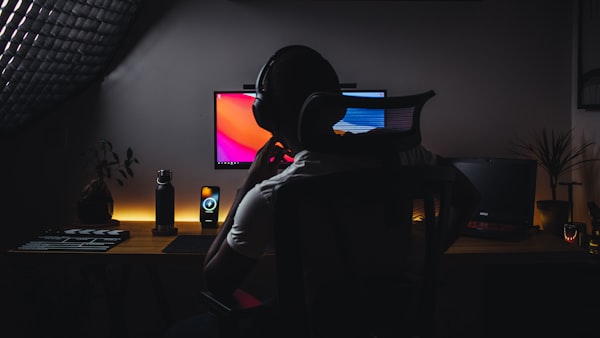What’s the metric?
I’ve produced content online for six years through a variety of platforms and mediums, and I’d like to share something I firmly believe in.
It’s clear that social media has proven itself to be a double-edged sword.
On one hand, it helps us stay connected with those we care about around the globe. It helps give us quick access to information, trends, funny or interesting things like memes, and more.
On the other hand, it has encouraged and promoted behavior that some might find distasteful for the sake of getting attention and views.
We lose ourselves in the pursuit and thirst for attention. We degrade ourselves for the sake of uploading what sells and what gets the likes.
We get obsessed over metrics such as likes and followers, because to some misguided people, they determine what you’re worth. And I don’t write “misguided” in a condescending tone. We’re all misguided in some area in one way or another.
But when you lose focus of what’s truly important, or if your lack of understanding is causing you to needlessly stress out, then it’s helpful to realign yourself and understand what it is that really matters.
I’ve already wrote about where I stand when it comes to vanity metrics such as likes and followers.
In a nutshell, engagement matters, yes. Credibility matters, yes. But neither digit can possibly encapsulate you as a whole, nor your worth.
Besides, neither one reflects what I consider to be the most important thing when it comes to content (such as mine) created with the purpose of having an impact: change.
The metric that I’m referring to is reads.
Why reads?
You might not understand why a read matters more to me than a like/clap or a follow, but here’s my line of thinking.
Think about how much time you spend reading or consuming any form of content really.
I think it’s safe to say that most people on the Internet do not like every single piece of content that they like, or follow every single account that produces something that they like.
I personally rarely like content on social media that I enjoy. I usually take a screenshot or send it to a friend, but I don’t actually like the post itself. And is the case for pretty much everyone, your views will always outnumber your likes.
A read is a form of consumption. As is a listen on a podcast, or a view on a video.
Let’s take it a step further.
Let’s say you buy a book online, either through a website like Amazon or even on an ebook platform. You read the book and thoroughly enjoy it.
Be honest with me and tell me: how many times have you actually gone back to give the book a proper review for others to read?
How many times have you listened to a podcast episode, liked it, given a visible “like” somewhere for it, and gave a review for it?
How many times have you watched a video that you enjoyed, given it a like, and then left a comment?
My point is: whether we indicate that we’ve been affected by something online or not, the number of times that we indicate that we’ve been impacted or changed by a piece of content will always be outnumbered by the amount of times we consume said content.
And the only situation where this is not the case is if you visibly reacted online to every single thing you’ve ever consumed, and I highly doubt that that’s the case for anyone.
Of course, you can still consume a piece of content and not be affected by it and thus not leave a like or follow the author who produced the content.
But for simplicity’s sake, in this article, we’re simply talking about instances where someone is impacted by a piece of content and chooses not to react to it. It happens all the time. To you, me, everyone.
I’ve read countless articles and consumed countless pieces of content online to expand my knowledge and understanding of things around me and most of the time, I’ve extracted value without the author ever knowing that I even exist.
The same phenomenon is, in all likelihood, happening to my content as well.
If you produce enough content online, chances are, you’re going to help someone out and you won’t even know that you did so.
That’s where the value of the “read” comes in. If it’s the only thing a reader leaves behind (no likes or no follow), it’s the only proof of someone’s existence that they actually consumed your content in full.
There’s a chance they got some value out of what you produced and there’s a chance they didn’t.
But like I said, if you produce enough content, it’s impossible for there to not be a single person out there online who got value from you at some point.
Change happens beneath the surface
This is why I think it’s important for us to be able to remind ourselves that the likes and the follows don’t mean everything, and they never did.
I concede that likes can definitely help you better understand what it is your audience likes more of and what they like less of, but you have to remember there’s a lesser known, larger group of people who still enjoy what you do, even if they don’t make their presence known.
The same thing goes for followers. There are people out there I support who I am also a fan of, but I don’t always track them down on social media to follow them. But if I stumbled across their content, I’d get value from it and I appreciate them and what they do.
As previously mentioned, if you’re in the same boat as me, that you have a positive impact on others with your content is the most important thing to keep track of, and it’s most fairly represented by the amount of times your content has been consumed, such as through a “read.”
Not through a like or a clap. Not through how many followers you have.
But regardless, don’t let any metric define how good or bad of a person you are. That’s silly.
There’s more to you than that.










Member discussion